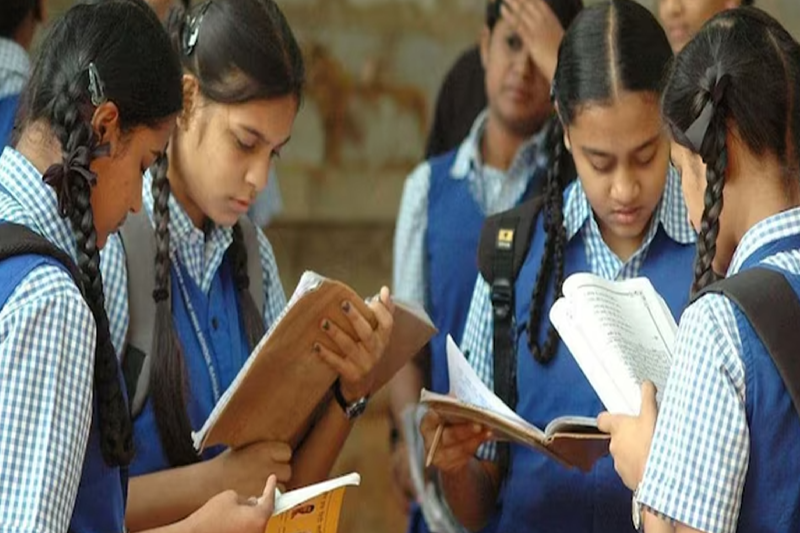
CBSE Ends Physical Migration Certificates for Classes 10 & 12: Now Available via DigiLocker
In a significant step towards digital transformation, the Central Board of Secondary Education (CBSE) has announced that it will no longer issue physical migration certificates for students of Classes 10 and 12. Starting from the 2025–26 academic year, students will receive digitally signed migration certificates through DigiLocker, India’s secure online platform for storing and accessing official documents. This move not only ensures faster and easier access for students but also aligns with the University Grants Commission (UGC) directive that urges universities to recognize digital academic records stored on the National Academic Depository (NAD) and DigiLocker as legally valid.
This digital initiative marks a major step in CBSE’s ongoing efforts to modernize administrative processes, reduce dependency on physical paperwork, and make essential academic documents more accessible to students nationwide.
Migration Certificates: Legal Validity and Importance
A migration certificate is an official document issued by an educational board that enables a student to transfer from one school or educational board to another. It confirms that the student has successfully completed their studies under the issuing board and is eligible to continue education elsewhere.
With the shift to a digital format, CBSE ensures that these certificates continue to hold the same legal validity as physical copies. They are recognized by all higher educational institutions (HEIs) across India, making the transition to a digital system seamless for students applying for admission to new schools, colleges, or universities.
Student-Friendly Update: Free Migration Certificates
In addition to digitization, CBSE has announced that the migration certificates will now be available free of cost. After the board declares Class 10 and Class 12 results, the digital certificates will be automatically uploaded to each student’s DigiLocker account.
For students who may still require a printed copy during the transition phase, CBSE provides the option to apply for one through the Duplicate Academic Document System (DADS) portal at cbseit.in. Once requested, the document will be verified, processed, and dispatched to the student’s address. This hybrid approach ensures continuity for students accustomed to physical certificates while encouraging the shift to digital records.
How to Access CBSE Migration Certificate via DigiLocker
Students can access their digital migration certificates through DigiLocker by following a simple process:
- Visit the DigiLocker website or open the mobile app.
- Log in using your registered credentials.
- Set up a security PIN if you haven’t already done so.
- Navigate to the “Issued Documents” section.
- Click on CBSE Documents and select Migration Certificate.
- Download and save the certificate for future use.
CBSE has also introduced a six-digit access code required to activate DigiLocker accounts. Schools are responsible for distributing these codes to their students. Those who have not received their access codes should contact their school administration immediately to ensure access.
This process ensures that students can securely store and retrieve their migration certificates from anywhere, eliminating the delays and logistics associated with physical documents.
Benefits of Digital Migration Certificates
The shift to digitally signed certificates offers multiple advantages:
- Convenience: Students no longer need to wait for physical dispatch of certificates or visit board offices.
- Accessibility: Certificates can be accessed anytime, anywhere via DigiLocker.
- Security: Digitally signed documents are tamper-proof, ensuring authenticity and preventing forgery.
- Cost-Free: The certificates are now available free of charge, reducing financial burden on students.
- Seamless Recognition: Higher educational institutions across India accept digital certificates as legally valid.
By implementing this system, CBSE is streamlining academic record management and enabling students to transition smoothly between schools and boards without administrative hurdles.
Aligning with National Academic Standards
This digital transition also reflects CBSE’s commitment to national academic standards and technological adoption. The move aligns with UGC directives on recognizing digital academic records and complements the National Academic Depository (NAD) initiative, which stores all academic awards, degrees, and certificates in a secure electronic format.
Students now benefit from faster verification and processing, reducing delays in admissions to higher education institutions. Educational institutions, in turn, can rely on authenticated digital records for admissions and verification, reducing administrative workload.
Guidance for Students and Schools
To ensure a smooth transition, students are advised to:
- Verify that they have received their six-digit DigiLocker access code from their school.
- Set up their DigiLocker account and security PIN before certificate release.
- Download and save the digital migration certificate as soon as it is available.
- Apply through the DADS portal only if a physical copy is necessary.
Schools play a critical role in guiding students, distributing access codes, and assisting with the transition to digital certificates. Proactive communication between schools and students is essential to prevent delays or confusion during this period.
A Step Towards CBSE’s Digital Transformation
CBSE’s decision to eliminate physical migration certificates represents a key milestone in its broader digital transformation agenda. By integrating DigiLocker, the board is not only simplifying access to academic records but also enhancing transparency, security, and efficiency in document management.
For millions of students across India, this initiative is a significant step forward, reflecting CBSE’s commitment to leveraging technology to create a more student-friendly, accessible, and future-ready education system.
As India’s educational ecosystem increasingly adopts digital solutions, CBSE’s move will likely serve as a model for other boards, encouraging nationwide adoption of secure, convenient, and authenticated electronic records.
Conclusion
The CBSE’s shift from physical to digital migration certificates for Classes 10 and 12 is a forward-looking initiative aimed at simplifying processes, reducing administrative burdens, and providing students with convenient, secure access to essential academic documents. With free availability, legal recognition, and seamless integration with DigiLocker, students are set to benefit from faster verification, greater accessibility, and enhanced security.
This initiative demonstrates CBSE’s commitment to modernization, student convenience, and technological innovation, paving the way for a more efficient and digitally empowered education system in India.


